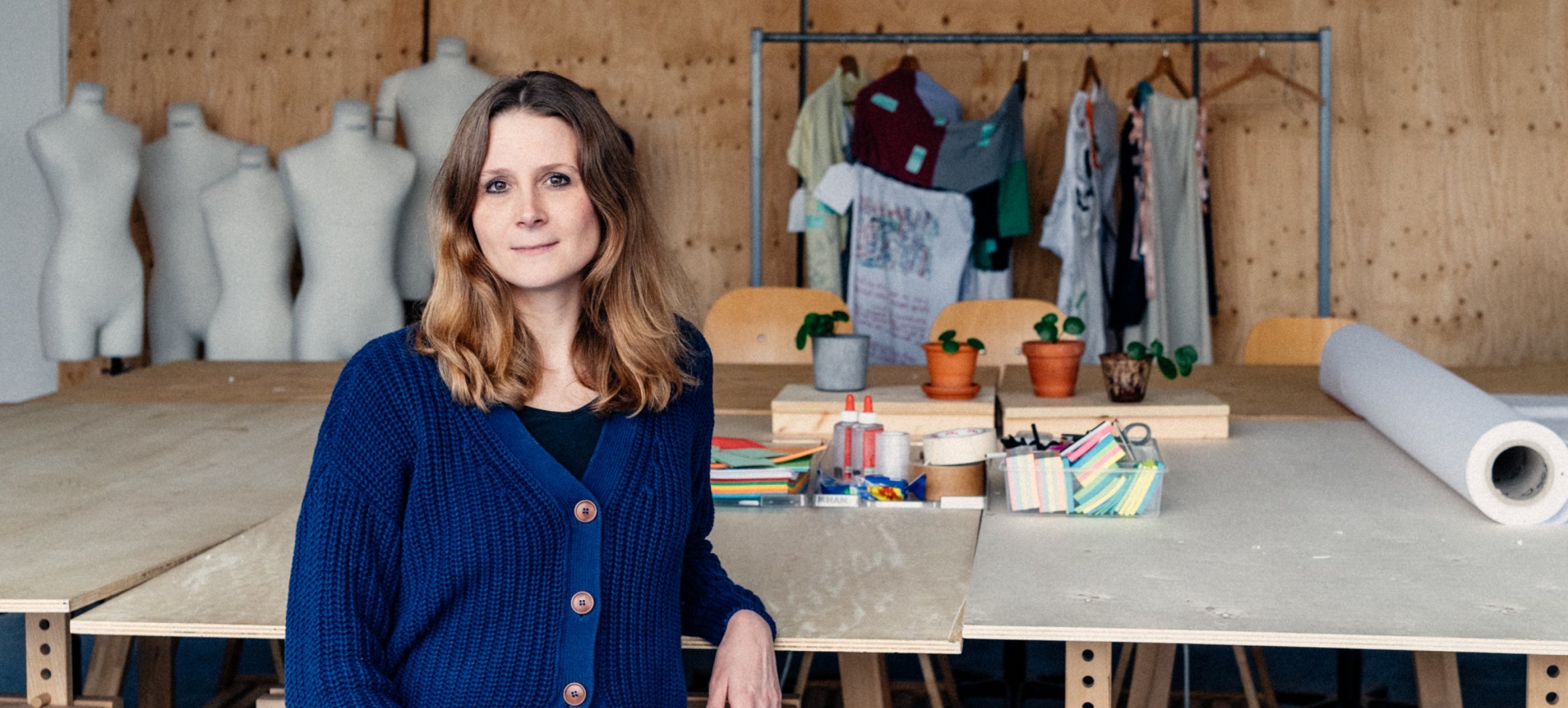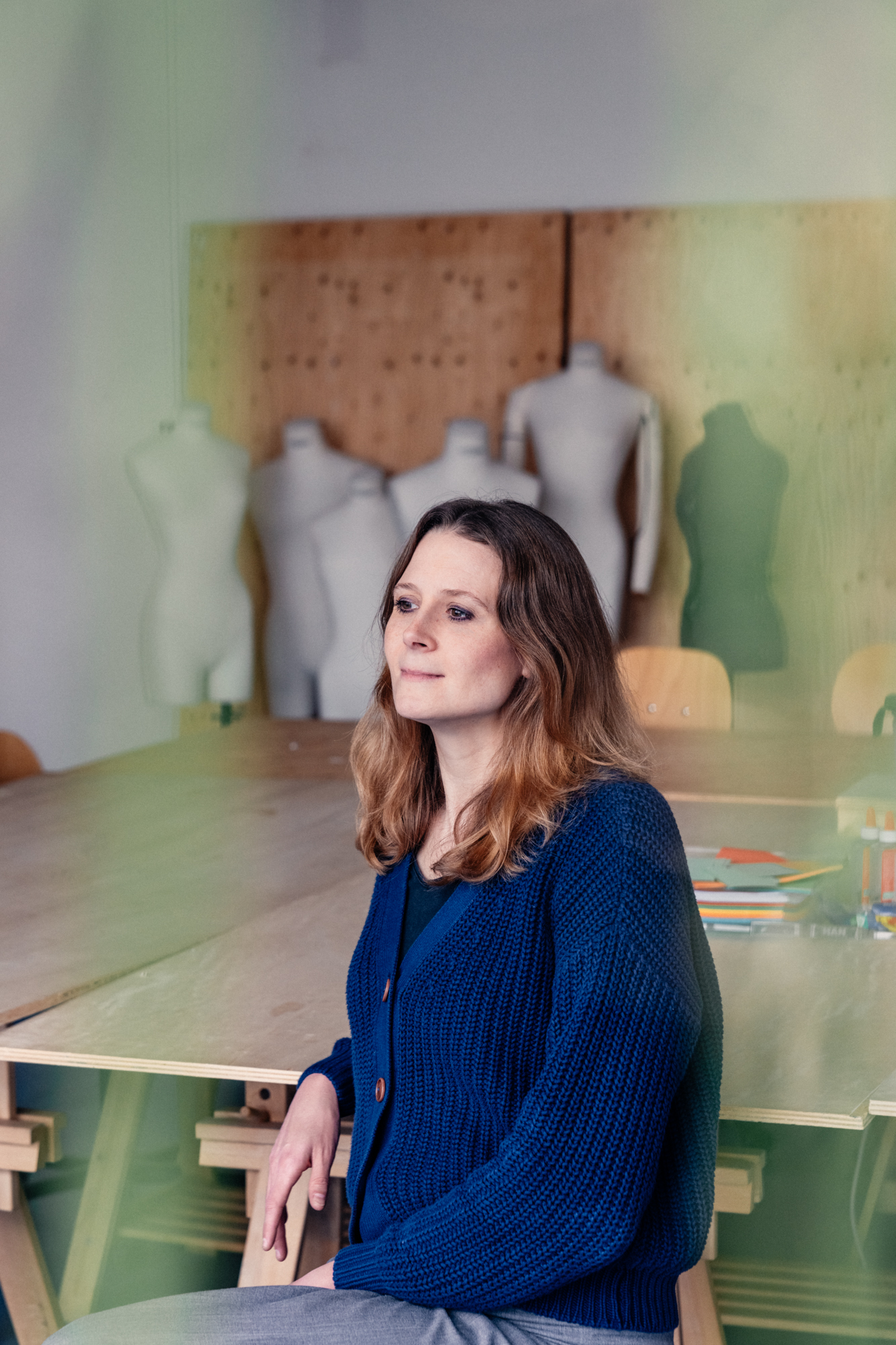Professor of Fashion Daniëlle Bruggeman: “The fashion industry operates as a capitalist system”
- Fashion
“In the West, we often perceive the industrial fashion system as a world of beautiful imagery, creativity, glamour, catwalks and spectacle. But what we do not see are the blood, sweat, and tears hidden behind this industry of mass consumption and mass production,” says Daniëlle Bruggeman, Professor of Fashion at ArtEZ, lecturer in the master’s programme Critical Fashion Practices and Professor by special appointment of Fashion and Sustainability at Radboud University in Nijmegen. Her inaugural lecture, Stitches of Care: Practising Solidarity through Fashion, at Radboud University marks her appointment as an Professor by special appointment, but also represents a milestone in her quest to make fashion more sustainable and solidary.

Daniëlle Bruggeman believes that the current fashion system is anything but solidary. “The fashion industry operates as a capitalist system, employing many non-solidary strategies,” she explains. “Think of the exploitation of workers in low-wage countries, environmental damage, and the use of natural resources for the clothes we wear. Mass production and mass consumption are the norm, with profit and growth as the primary focus.” According to her, what we need is a shift towards greater respect for people, animals and nature.
Towards more sustainable and ethical fashion practices

Daniëlle began her career as a cultural scholar at Radboud University. Following her PhD research on fashion and identity in 2014, she worked as a lecturer at the Royal Academy of Art in The Hague, among other things, before being appointed Professor of Fashion at ArtEZ in 2017. At ArtEZ, she leads the research programme of the Fashion Professorship and works closely with the master’s programme Critical Fashion Practices. “We engage in various research projects, all addressing the current challenges within the fashion industry, with a strong focus on sustainability and the questions that arise from it,” says Daniëlle. “In addition, we also focus on developing alternative approaches, or in other words: more sustainable and ethical fashion practices.” The aim? To demonstrate that things can be done differently. “We are not only questioning the way the fashion industry operates, but we also aim to propose alternatives. To do this, we conduct artistic and design-driven research and develop a critical fashion discourse.”
Bridging art and science
Daniëlle is particularly enthusiastic about her new role as an Professor by special appointment because it allows her to bridge the gap between art and science in the field of sustainable fashion. “We are already doing this to some extent in our projects,” she says, “but it would be fantastic to develop an interdisciplinary approach where scholars from various disciplines contribute their expertise. This would not only strengthen my work, but also help drive the systemic changes that are needed.”
We do not always have to create something new. There is already so much out there. Make sure to also focus on reusing materials and developing alternative fashion practices.”
Her inaugural lecture explores the theme of solidarity in the fashion industry in greater depth. The title of her lecture, Practising Solidarity, is inspired by a research project of the same name that she conducted with her team at ArtEZ, Daniëlle explains. “In this project, we asked artists and designers: ‘What do you consider to be solidaristic forms of fashion making and wearing?’ A book publication accompanies this project." It is the book Practising Solidarity, a joint publication by Bruggeman and other fashion makers, artists and scholars. She further emphasises the importance of transcending the Western perspective and restoring balance with nature. “We should not only take from nature but also develop practices that contribute to ecosystems. The way we currently exploit nature is simply unsustainable.”


